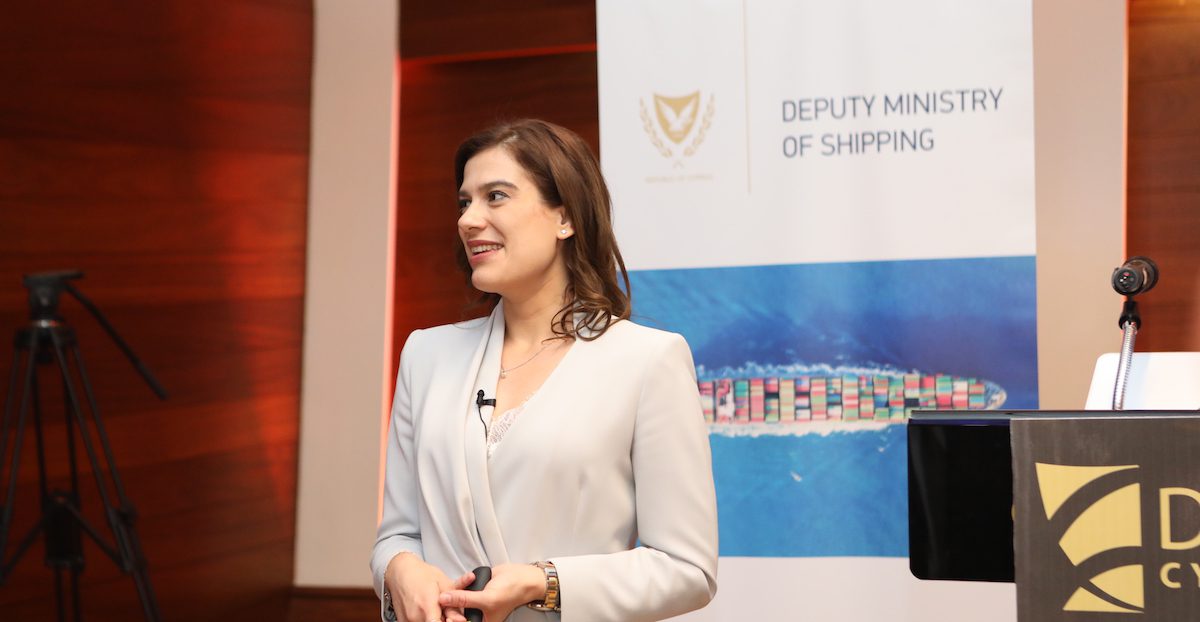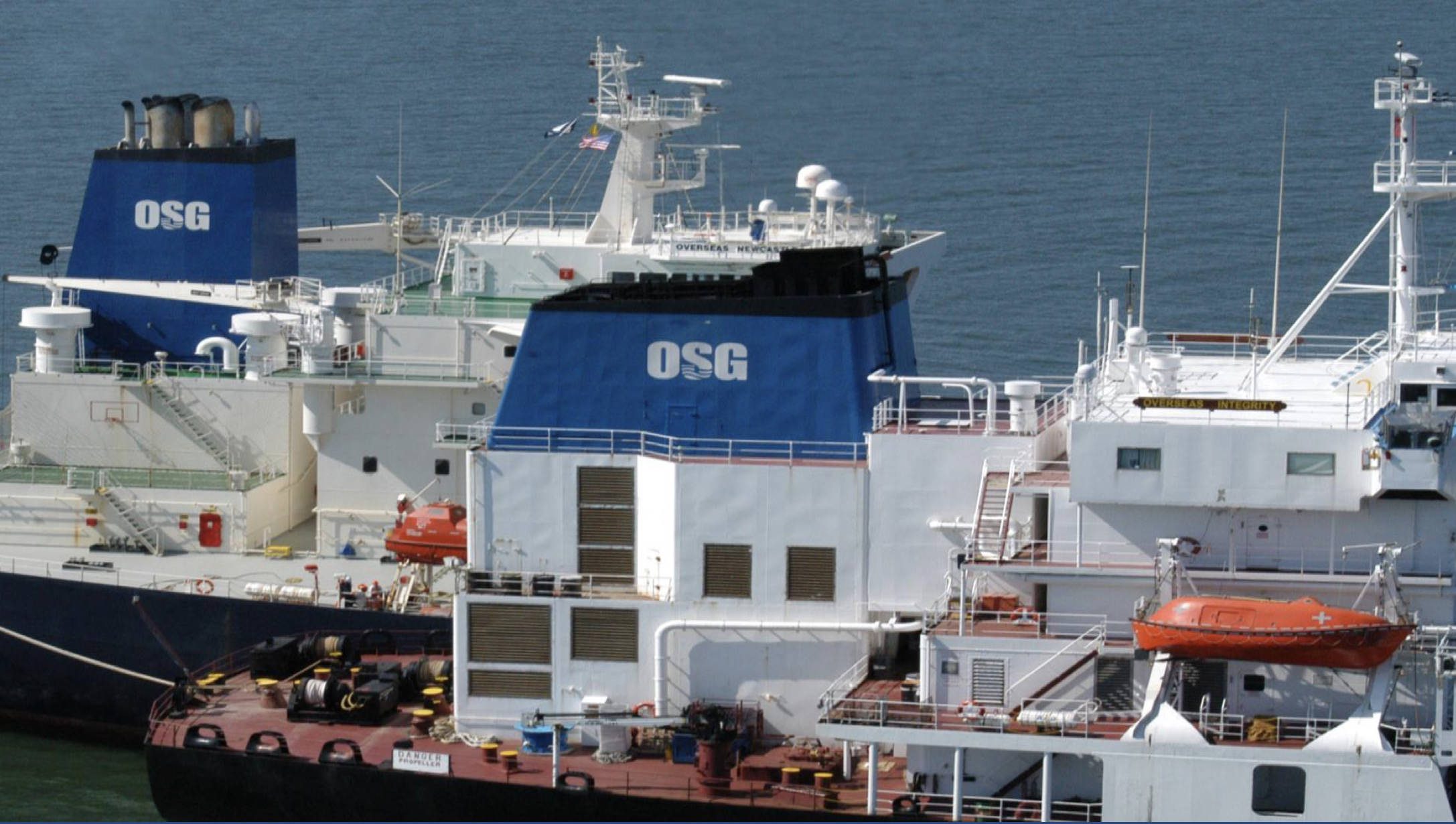Cyprus Shipping Deputy Minister Natasa Pilides.
On the eastern edge of the Mediterranean Sea near the major shipping routes connecting Europe, Asia, and Africa lies the island country of Cyprus, a small but important island in the world of maritime.
Cyprus’ maritime industry contributes so significantly to the economy that, in March of 2018, the government established the Cyprus Shipping Deputy Ministry (SDM) to increase the functionality, effectiveness, and flexibility of the public shipping administration. Since its inception, the Cyprus flag has grown significantly, and it now ranks among the top international fleets with more than 1,100 oceangoing vessels with total gross tonnage exceeding 24.4 million.
The number of shipping companies based in Cyprus and registered under the Cyprus tonnage tax system has also grown over the last decade to more than 220, with more than 30% growth in the two years since the establishment of the Cyprus SDM. These companies are supported by a number of other businesses providing ancillary activities, such as maritime technology companies, P&I Clubs, shipping brokers, specialized shipping lawyers and accountants, ship repair and maintenance services, as well as a growing oil and gas industry providing supporting services to operations in the East Med region.
“Maritime represents 7% of Cyprus’ GDP and employs approximately 3% of the country’s population,” says Natasa Pilides, the Shipping Deputy Minister. “Our goal as a Shipping Deputy Ministry is to strengthen Cyprus shipping and its consolidation as a modern, global shipping service center. We are achieving this through flexibility and speed of decision-making, the improvement and upgrading of state services provided, the promotion of the Cyprus flag, and the strengthening of the cooperation with the private stakeholders involved.”
One of the key roles of the Cyprus SDM has been to support “blue growth” initiatives – that is, long-term strategies that support sustainable growth in the marine and maritime sectors as a whole. An element of this is the SDM’s work with the Cyprus Marine and Maritime Institute (CMMI), an independent, international, scientific and business centre of excellence which will nurture closer cooperation and synergies between the maritime industry and the academic community. Forging relationships such as this contributes to the transfer of knowledge, the development, application and dissemination of cutting-edge technologies, and the exchange of best practices.
CMMI is headed by Zacharias Siokouros, a naval architect and former marine and offshore business manager with Lloyd’s Register.
“The aim from the start was to fill a gap in relation to research and innovation in the marine and maritime sector and beyond. We’re looking at the whole blue economy,” says Siokouros.
Working with Cyprus SDM and local private sector, CMMI is currently in the process of recruiting a team and identifying projects to help them achieve their vision.
“We formulate the priorities based on what we think the technology needs are for the industry, and then that feeds into CMMI in terms of what projects become more relevant to what the industry is looking for,” says Deputy Minister Pilides. “But the market also regulates this is some way because different companies in Cyprus have different ideas of what they want to financially commit to, and so do the various organizations who are taking part. Definitely, the focus is on projects that have a practical application and can help us meet our goals,” Pilides adds.
Digitalization is another core area of focus. Some of the services that the SDM provides include supporting new technologies and integrating them into current operations, as well as providing fast and efficient ship registration and a suite of online services including e-verification of certificates, an automated seafarers’ management system, and a career platform for seafarers.
“We are passionate about providing top quality services to support our clients and part of this has involved the restructuring of the Shipping Deputy Ministry, in line with international best practices,” said Pilides. “As well as securing EU approval for our tonnage tax system for a second 10-year period, we are developing a discount scheme that will reward environmentally-friendly vessels.”
One such initiative, endorsed by the Cyprus SDM, is the Fleet Information Sharing platform provided by Prevention at Sea, a Cyprus-based ISO 9001 maritime technology and marine risk firm. The F.I.SH. platform is an online ship data repository designed to standardize, optimize, and reduce time spent in the ship inspection process as well as ship data collection for review by third parties.
“Once an inspector or auditor is on board, whether they’re from a Flag State, Port State Control, P&I, or class, they spend a considerable amount of time reviewing data and records before they move forward to the physical inspection. I realised a lot of time and effort on behalf of the inspectors and crew is spent on this part of the process, so why not put this information in the cloud for review beforehand,” says Petros Achtypis, founder of Prevention at Sea.
“Education and innovation are critical to sustainable blue growth,” concludes Pilides. “This relies upon nurturing closer cooperation and synergies between the maritime industry, the academic community, and innovators from other sectors. The objective of Cyprus Shipping Deputy Ministry is to grow the sector in a way where all services are available within our own cluster and where we have all the collaborations with institutions, companies, and governments abroad, as well as the EU and IMO. This will ensure that the maritime industry prospers on both a national and international scale.”
Unlock Exclusive Insights Today!
Join the gCaptain Club for curated content, insider opinions, and vibrant community discussions.

 Join The Club
Join The Club







![A screengrab of a map showing an earthquake Mindanao, Philippines on Dec 2, 2023. (Image: US Geological Survey [USGS])](https://gcaptain.com/wp-content/uploads/2023/12/Screenshot-2023-12-02-at-10.45.17-AM-copy.png.webp)





